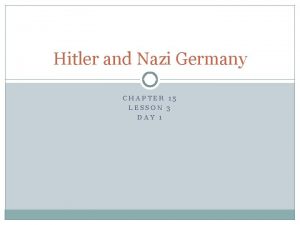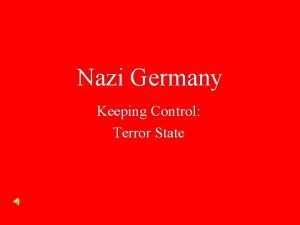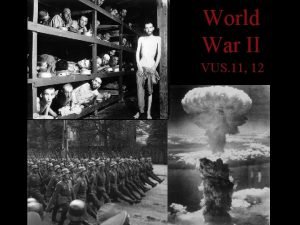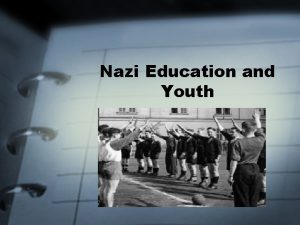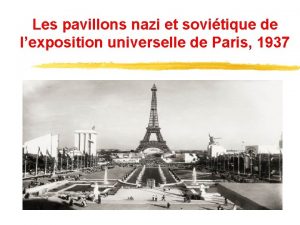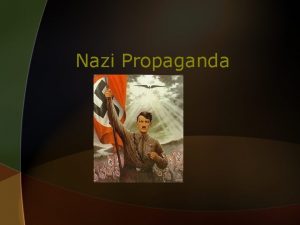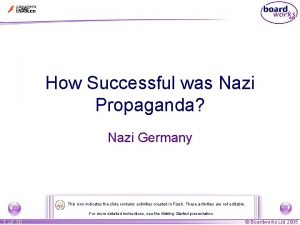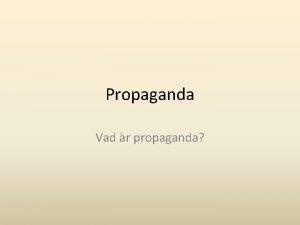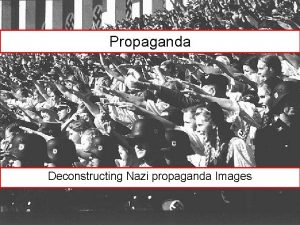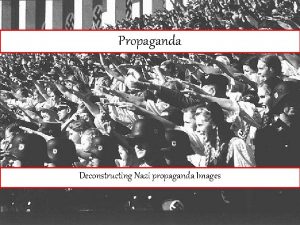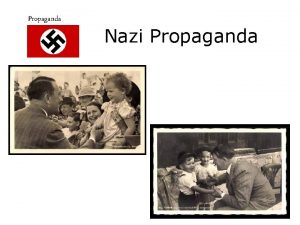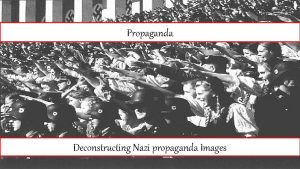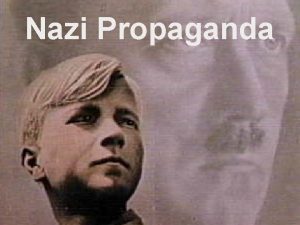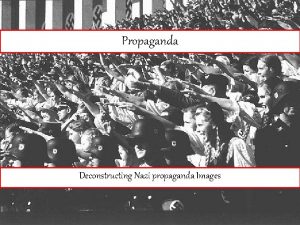Nazi Germany How Successful was Nazi Propaganda These












- Slides: 12

Nazi Germany How Successful was Nazi Propaganda? These icons indicate that teacher’s notes or useful web addresses are available in the Notes Page. This icon indicates that the slide contains activities created in Flash. These activities are not editable. For more detailed instructions, see the Getting Started presentation. 1 of 18 © Boardworks Ltd 2006

Introduction 2 of 18 © Boardworks Ltd 2006

Propaganda Photograph courtesy of the Imperial War Museum, London. This picture shows Hitler ascending to the speaker’s podium at the 1934 Nuremburg rally. What kind of effect do you think this spectacle had on ordinary Germans who attended? 3 of 18 © Boardworks Ltd 2006

What is propaganda? Propaganda is best thought of as being ‘political advertising’. It is designed to get people to think and believe what you want them to. For the Nazis, this involved: persuading Germans to believe in Nazi ideas and love their Führer convincing those hostile to the regime that the Nazis were so powerful that opposition would be futile. Propaganda has been widely used by governments to distort facts, maintain popularity and boost morale. Are there any circumstances in which a government could legitimately use propaganda? 4 of 18 © Boardworks Ltd 2006

Censorship Alongside their propaganda machine, the Nazis practised strict censorship. People who disagreed with Nazi ideas were silenced. In order to get any work published or performed in Nazi Germany, you had to be a member of the Reich Chamber of Culture. Writers, film makers and artists were denied membership if their views were un-Nazi. Books which did not fit in with Nazi doctrine were publicly burnt. Essentially, the Nazis controlled everything that the German people read, heard and saw. 5 of 18 © Boardworks Ltd 2006

The Arts Painting, Architecture and Literature 6 of 18 © Boardworks Ltd 2006

Hitler and the arts 7 of 18 © Boardworks Ltd 2006

Broadcasting Newspapers, Radio, Film 8 of 18 © Boardworks Ltd 2006

Newspapers 9 of 18 © Boardworks Ltd 2006

Radio 10 of 18 © Boardworks Ltd 2006

Film 11 of 18 © Boardworks Ltd 2006

Conclusion Evidence of success: In the short term, propaganda played an important role in getting Hitler into power and then advertising his main ideas. The general lack of resistance to the Nazi regime is an important indication that propaganda was effective. For young people, propaganda had a lasting effect. Despite the loss of World War II, a poll conducted by the USA in October 1945 showed that 42% of German youths believed that reconstruction would best be carried out by a ‘strong new Führer’. 12 of 18 © Boardworks Ltd 2006
